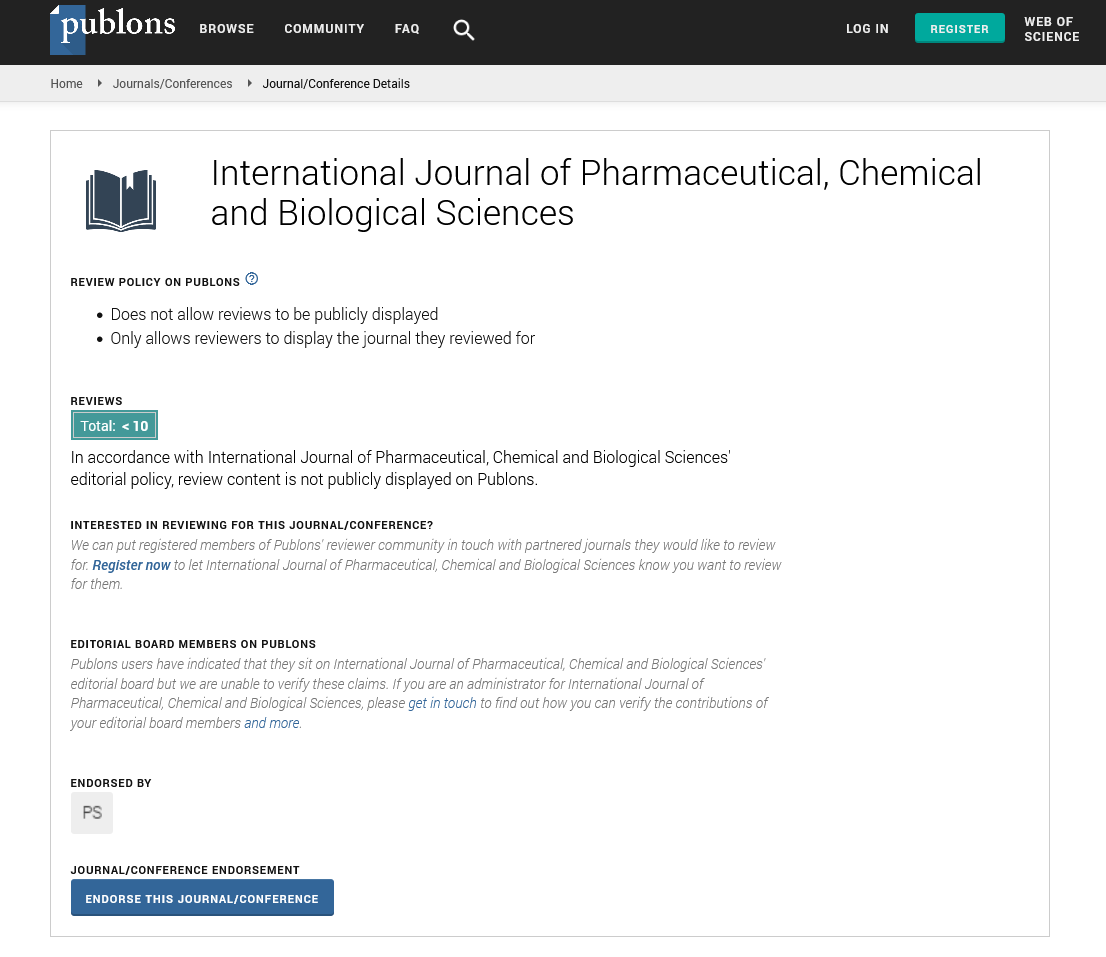Opinion - International Journal of Pharmaceutical, Chemical and Biological Sciences ( 2023) Volume 13, Issue 2
Exploring the Fascinating World of Petroleum Chemistry
Wang Peng*Wang Peng, Department of Chemistry, University of Wuhan, China,
Received: 31-May-2023, Manuscript No. ijpcbs-23-113779; Editor assigned: 02-Jun-2023, Pre QC No. ijpcbs-23-113779 (PQ); Reviewed: 16-Jun-2023, QC No. ijpcbs-23-113779; Revised: 21-Jun-2023, Manuscript No. ijpcbs-23-113779 (R); Published: 28-Jun-2023, DOI: 10.36648/2471-9668-13.2.8
Introduction
Petroleum chemistry is a branch of chemistry that delves into the study of hydrocarbons, their derivatives, and the vast array of compounds derived from crude oil. It plays a pivotal role in our modern world, as petroleum products are integral to various aspects of our daily lives, from transportation and energy production to the manufacture of plastics and pharmaceuticals. In this article, we will explore the essential concepts of petroleum chemistry and its significance in today’s society. Crude oil, often referred to as black gold, is a complex mixture of hydrocarbons with varying molecular weights. The primary constituents of crude oil are alkanes, cycloalkanes, and aromatic hydrocarbons. These molecules consist of Carbon (C) and Hydrogen (H) atoms bonded together in various arrangements, creating a wide range of compounds. One of the fundamental processes in petroleum chemistry is fractional distillation. During this process, crude oil is heated in a distillation tower, causing it to vaporize. As the vapor rises through the tower, it cools and condenses into different fractions based on their boiling points. The fractions include gases, gasoline, kerosene, diesel, and heavier products like lubricating oils and bitumen. Each fraction has its unique composition and properties, making them suitable for specific applications.
Description
Petroleum refineries play a crucial role in transforming crude oil into valuable products. Beyond separating crude oil into various fractions, refineries employ various chemical processes to further refine and enhance these fractions. For example, the cracking process breaks down heavy hydrocarbons into lighter ones, while the reforming process rearranges hydrocarbon molecules to produce high-octane gasoline. Additionally, petrochemical plants use feedstocks derived from crude oil to produce a vast array of chemicals and plastics, contributing to industries such as agriculture, medicine, and packaging. While petroleum chemistry has revolutionized our world, it is not without environmental challenges. The combustion of petroleum products releases Carbon Dioxide (CO2) and other greenhouse gases into the atmosphere, contributing to climate change. Petroleum spills can have devastating ecological consequences, as witnessed in various oil spills throughout history. Consequently, there is a growing emphasis on developing cleaner and more sustainable alternatives to conventional petroleum based fuels and materials. Petroleum chemistry is evolving to address environmental concerns. Biofuels, such as ethanol and biodiesel, are being developed as renewable alternatives to traditional fossil fuels. These biofuels are derived from organic sources like corn, sugarcane, and algae, reducing the carbon footprint associated with energy production. Furthermore, researchers are exploring advanced technologies like Carbon Capture and Storage (CCS) to mitigate the emissions produced by burning fossil fuels.
Conclusion
CCS involves capturing CO2 emissions from industrial processes and power plants and storing them underground, preventing their release into the atmosphere. Petroleum chemistry is a dynamic field that has transformed the way we live and function in the modern world. From powering our vehicles to providing essential materials for countless industries, petroleum products are omnipresent. However, the environmental impact of petroleumbased products is a pressing concern, leading to ongoing research and development of sustainable alternatives. As we continue to innovate and explore new avenues in petroleum chemistry, we strive for a balance between meeting our energy and material needs while safeguarding the planet for future generations.

